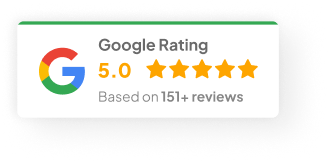13 Mar 25
What Questions to Ask a Web Designer?
Your website could be your biggest asset or your biggest headache. The trick is finding a designer who can actually pull it off. It’s tricky. It’s tricky. Hire the wrong person and you’re left with wasted time, money, and a site that just falls flat.
Here’s a checklist of 8 questions I always tell clients to ask before signing anything. These will help you figure out if the designer really knows their stuff—and if they’re the right fit for your project.
1) How long have you been designing websites?
It’s not all about years, but having a decade of experience means they’ve probably dealt with the good, the bad, and the downright messy. They’ve learned how to handle curveballs.
A seasoned designer won’t just make your site look pretty. They’ll anticipate problems before they hit, manage your expectations, and get things done without drama.
I remember one client who hired a young designer straight out of college. Six months in, the site was slow, clunky, and just couldn’t handle the traffic. We had to rebuild it from scratch. So don’t be shy—ask about their background and what projects they’ve actually done.
2) Can I see examples of your past work?
Talk is cheap. A portfolio shows what they really do. Look for real examples—sites that actually work, not just fancy screenshots.
Things to check for:
-
Variety in design styles and industries
-
Clean, user-friendly layouts
-
Mobile responsiveness (this is huge)
-
Features you actually need, like booking systems or online stores
3) What’s your process like?
Design isn’t magic. It’s a journey. Good designers walk you through the steps—from first chat to launch day. Getting the process clear upfront helps you know what’s coming, when to deliver your stuff, and how much you’ll be involved.
A lot of designers now use tools like Figma or Adobe XD to share early mockups. Others run live workshops. Both work, but you want to know what you’re signing up for.
4) Is the site mobile-friendly and responsive?
Here’s the deal: almost everyone browses on their phone these days. If your site looks wonky or loads slow on mobile, you’re losing business—no question.
Ask how they make sure the design adapts smoothly to all screen sizes. Don’t just take their word for it—try their demo sites on your phone.
5) How do you handle SEO?
A beautiful site means nothing if no one can find it. SEO has to be baked in from day one, not slapped on later.
Make sure they get this stuff:
-
Clean, crawlable code
-
Fast loading times
-
Optimised images
-
Proper headings and meta tags
If they start sounding like they’re speaking another language here, that’s a red flag.
6) What about security?
This one’s crucial. If you’re collecting any personal info, payments, or even emails, your site needs to be locked down tight.
Good designers set up SSL certificates (the little padlock in your browser), keep plugins updated, and follow secure coding practices. Ask what they do to keep hackers out and your data safe.
7) How long will it take?
You want a website, sure, but you want it done on time. Get a clear timeline upfront—with milestones for drafts, development, testing, and launch.
If someone can’t give you a straight answer, beware. I’ve seen projects drag on for months because the timeline was all over the place.
8) Do you provide ongoing support?
Launching isn’t the end. Things break, updates come out, and you might want new features later.
Check if they offer ongoing maintenance and support, what it costs, and what you get. Having someone reliable to call saves you headaches down the track.
Conclusion
Building a website isn’t just ticking a box. It’s your digital home, your round-the-clock salesperson, your first handshake with a new customer. Asking these questions upfront helps you find someone who actually cares about your project.
At Chromatix, we’ve helped heaps of businesses get websites that don’t just look good—they work hard and help grow your bottom line. If you want a straight-up, no-fluff chat about your next site, just give us a call.


